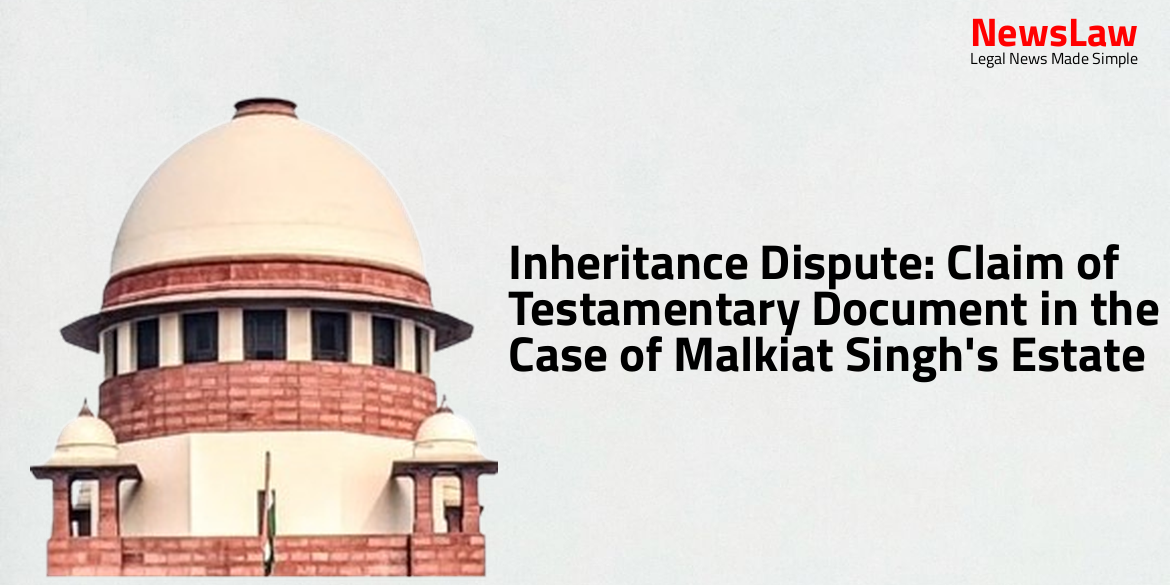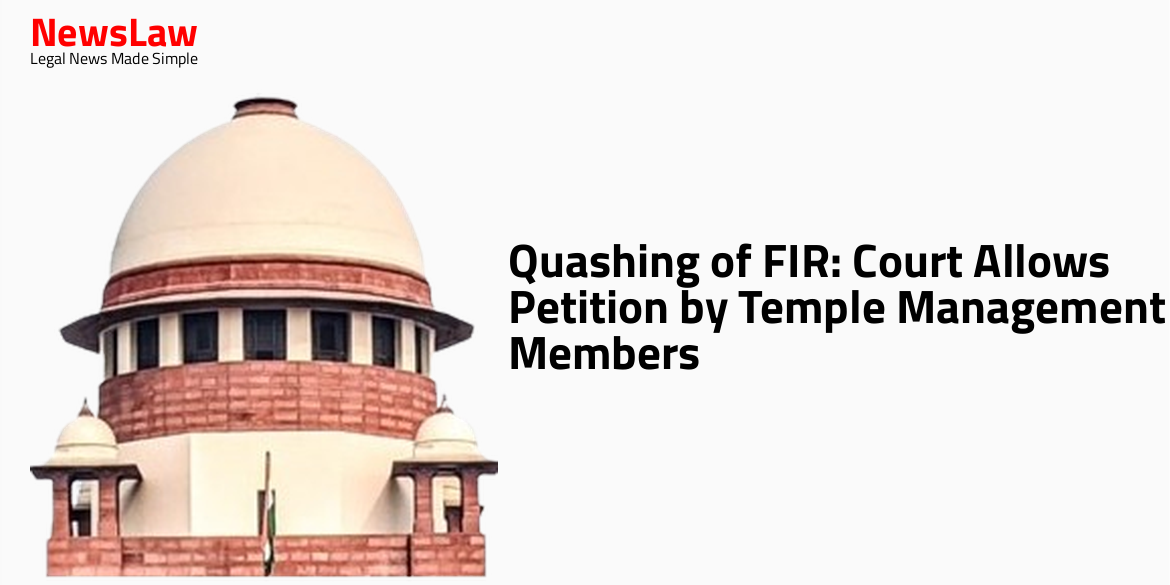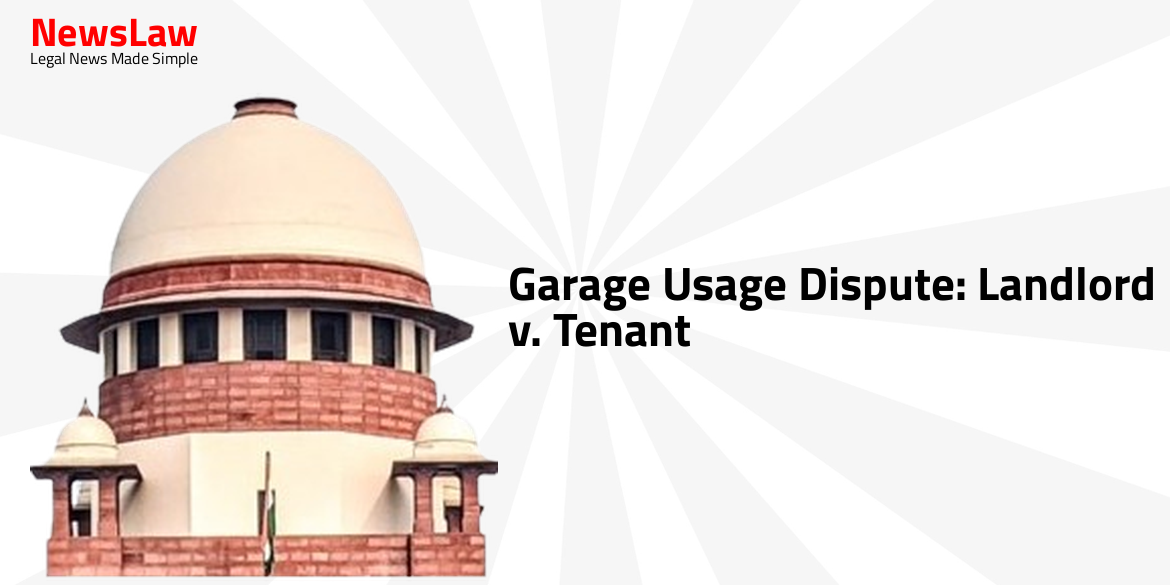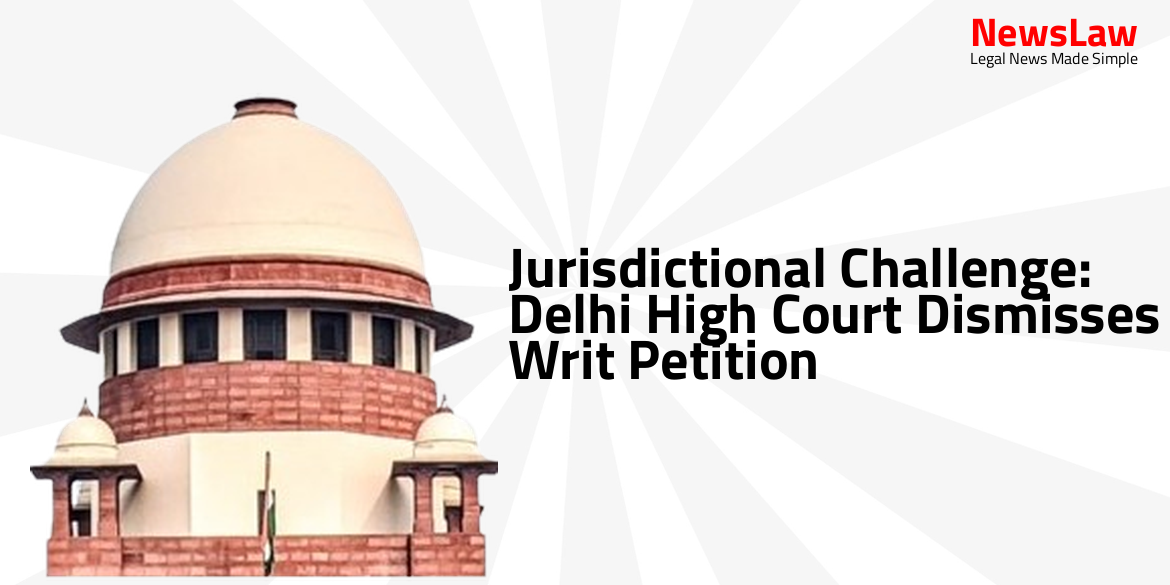The Delhi High Court recently passed a significant judgment in the case of an inheritance dispute concerning the estate of Malkiat Singh. The dispute revolves around the claim of a testamentary document allegedly affecting the rightful heirs’ shares. The court’s ruling provides valuable insights on the complexities of succession laws and the importance of clear documentation in such matters.
Facts
- Plaintiff filed an application seeking restraint against the Defendants regarding properties belonging to late father Sh. Malkiat Singh
- Plaintiff sought disclosure of a testamentary document or Will executed by late father
- All objections are left open for further consideration
- Rule 2 CPC is granted in favor of the Plaintiff
Arguments
- Defendant No.1’s counsel argues that the claim of the existence of a Will should be accepted as stated in the written statement.
- The counsel emphasizes that the stand on the written statement is to be taken at face value.
- The argument suggests that there is a testamentary document or Will in existence.
Analysis
- The court may pass judgment on admission under Order 22 even if issues are framed.
- Admission can be in any form, not necessarily in pleadings, and can be acted upon by the court.
- Defendant No.1 claims the existence of a testamentary document in possession of the Plaintiff.
- Late Shri Malkiat Singh had two daughters and one son – Plaintiff, Defendant No.1, and Defendant No.2.
- There has been an attempt to delay proceedings before the Trial court by Defendant No.1.
- Plaintiff denies possession of any testamentary document as claimed by Defendant No.1.
- The relinquishment deed affirms that Late Shri Malkiat Singh had three heirs, including the Plaintiff.
- Defendant No.1 and Defendant No.2 do not rely on a Will or testamentary document for the relinquishment deed.
- The relinquishment deed itself acts as an admission of Plaintiff’s 1/3 share in the father’s assets.
- Admissions in the form of pleadings are fully binding and constitute a waiver of proof.
- An admission can be made in pleadings or otherwise, as held in the case of Nagindas Ramdas (supra).
- The court can consider admissions from pleadings, documents, or any other source.
- In the absence of a basis or foundation for a plea regarding a Will or testamentary instrument, such a plea cannot be made abstractly.
- The principle is established that true and clear admissions are the best proof of the facts admitted.
- The rule allowing the court to pronounce judgment on admission at any stage of the proceedings has a wide scope.
- The court has the discretion to pass a decree without a trial if it deems the case does not require one.
- The provision giving the court discretion on passing a decree based on admission should be exercised on well-established principles.
- Admissions can be made orally or in writing.
- The written statement does not raise any plausible defence.
- Each of the three heirs has a 1/3 share in the father’s assets.
- Defendant no.2 relinquished her share to Defendant no.1.
- Partition suits involving close family members seek quick closure to disputes.
- The relinquishment deed confirms the Plaintiff as one of the surviving legal heirs of Late Shri Malkiat Singh.
Decision
- Ms. Amrit Kumar Oberoi, Advocate, appointed as Mediator to reconcile disputes between parties.
- If reconciliation efforts fail, parties can seek appointment of Local Commissioner.
- Plaintiff declared owner of 1/3rd shares of her late father, Shri Malkiat Singh.
- Preliminary decree passed in favor of the Plaintiff.
Case Title: CHARANJEET KAUR Vs. RAVINDER PAL SINGH & ANR. (2024:DHC:3752)
Case Number: CS(OS)-382/2022



